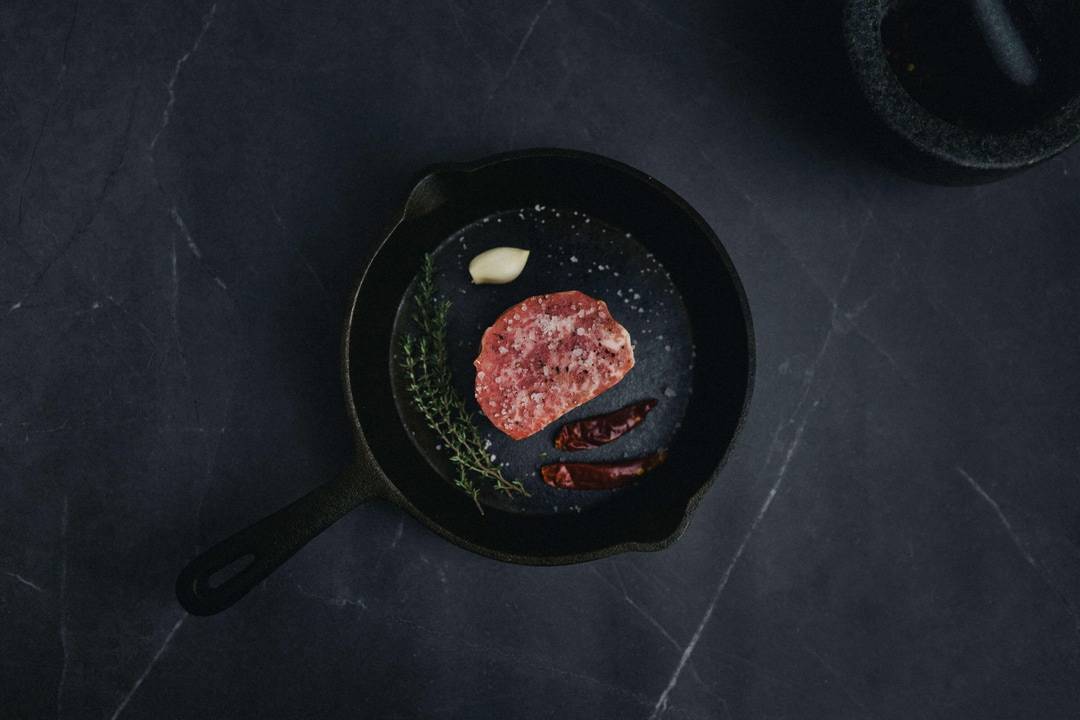Dr. Martin Hofmann, a materials scientist at research university ETH Zurich, has developed a novel method for recreating the fibrous structure and “marbling” effect of high-quality steak, reports Phys.org.
Before working with plant-based meats, Dr. Hofmann’s previous research focused on soft materials, particularly the flow properties and mixing behavior of emulsions. For his doctorate, the scientist demonstrated it was possible to control the flow movements of very thin layers of water and oil flow. He later realized he could apply this knowledge to the development of more realistic plant-based meats.
Working with pea protein, chopped carrots, wheat fibers, spices and flavors, Dr. Hofmann first recreates the basic meaty structure of beef with a protein “dough” that is pushed through specially designed dye attachments. A simple water and oil emulsion is used in place of fat tissue.

The marbling effect
But what separates premium, highly prized beef like Kobe and Wagyu apart from most steaks is marbling, or the random distribution of fats throughout muscle tissue. Dr. Hofmann says replicating this movement of fats is not a straightforward task. “Nature took its time to create bovine muscle tissue. Recreating it requires a great deal of research,” Hofmann notes, adding: “You have to imitate something highly irregular. Because when we look at one half of a steak, it tells us nothing about what the other half looks like.”
For his breakthrough marbling effect, Dr. Hofmann leveraged his prior experience with soft materials to create what he calls “advective processing”. This method combines pea protein and fat by forcing them through an extrusion dye attachment, where they are continuously mixed. A software program created by Hoffmann controls the process.

Dr. Hofmann hopes to use his research to work with other companies to produce better, more complex animal-free meat products. “I’d like to help launch a healthy, environmentally and animal-friendly substitute for high-quality meat that tastes like the animal-based original,” he comments.





